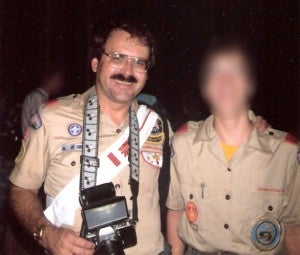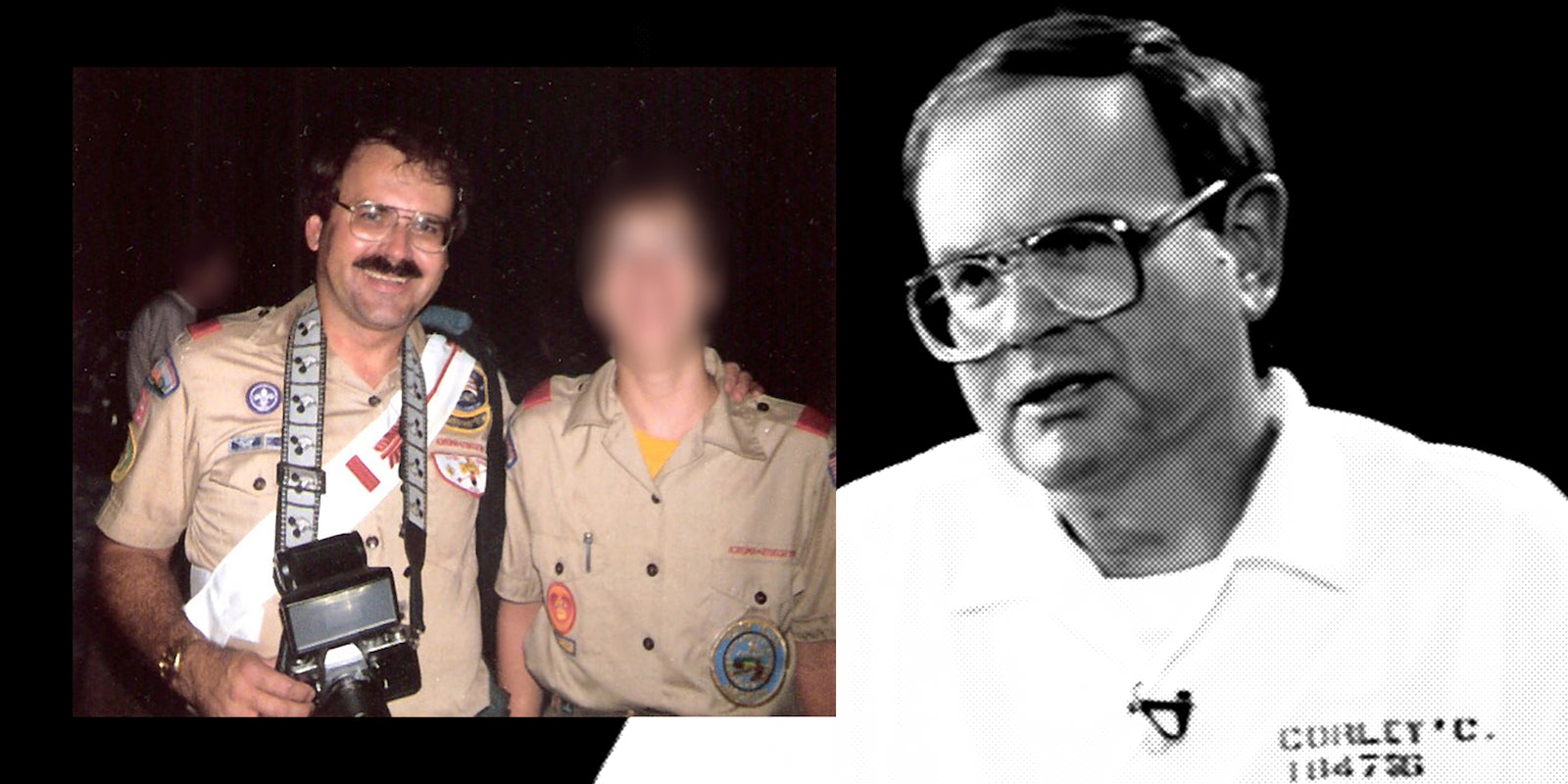“How long did it take you to realize this wasn’t normal, that you weren’t OK with this?” I ask Jason Lee over the phone. A long time, he tells me. Nearly five years.
“It’s like, if you grow up with people telling you that the grass is blue and the sky is green, and that became your reality,” Lee tells the Daily Dot. “Then, all of a sudden, you travel to a different country, and people around you start talking about how beautiful the blue sky is, and you’re like, ‘Wait a minute, that’s green, that’s not blue.’ You have to really reset your definition of what you know.”
The rest of Lee’s life, in some ways, will always feel like he’s in a foreign country. Even though Lee is one of 39 million U.S. adults who has survived child sexual abuse, he says he will never feel like he fits in with the rest of the world.
When Lee’s parents got divorced in his pre-teens, he moved with his mother and brother from Atlanta to Birmingham, Alabama. While his mom was dealing with the split and trying to find a job, the kids got involved in church and Boy Scouts. Lee soon grew close to an assistant scoutmaster and church youth program leader named Charles “Don” Corley.
Corley was married with three kids whom Lee would often babysit. There was also yard work Lee could do and afternoons when he could just hang out. It wasn’t long before Corley became, as Lee puts it, a “surrogate father-figure.” Corley was easy to talk to. No one, except Corley, noticed that Lee needed a friend. Just like no one noticed Corley and Lee spent considerable amounts of time together. And no one noticed when, at 12 years old, Lee was first sexually molested by Corley.

This went on for five, almost six years. It wasn’t until Lee was in his senior year of high school, when he became strongly interested in a girl, that he told Corley he was no longer OK with the physical relationship they had. Even then, though, Lee didn’t understand fully what it was. He didn’t have a name for the abuse.
The only people Lee ever told about Corley were the girl he was seeing and an adult leader in his Boy Scout troop. He thought his secret died there.
But soon after he went away to college, Lee found out that Corley had molested at least five other boys.
In 1995, Lee was one of three boys who came forward and testified against Corley after one of the scoutmaster’s victims told his parents. Corley was sentenced to 30 years in prison over two charges of sodomy and three charges of sexual abuse.
Twelve years later, at age 40, Lee has a wife, Megan, and a 5-year-old boy. Over the phone, he tells me he has to turn his face to the corner, so other people in the office can’t see him crying. “I have to talk about this now as a level of atonement for what I didn’t do before,” he says.
Despite years of therapy, Lee still blames himself for not speaking up sooner. And he still fears running into his abuser on the street one day. But what he fears more is not doing everything he can to stop that day from happening.
When Corley was first up for parole in 2007, Lee received a phone call from Corley’s lawyer, asking if he would kindly not stand in the way of the parole hearing. That made Lee furious. Lee says it was the day he committed to making sure Corley served his full sentence. (The law firm defending Corley, the Equal Justice Initiative, declined to be interviewed for this story. The Alabama Parole Board did not reply to a request for comment.)
Along with the other victims, he created a website, “30 is 30,” imploring folks to sign petitions, write letters, and mail them to the Alabama Parole Board. Lee and his mother even walked around an area mall gathering signatures.
It worked. In both 2007 and 2012, Corley was denied release. But this week, another five years later, he is up for parole again.
. . .
Parole for sex offenders is, naturally, a fraught subject. According to the American Probation and Parole Association, parole “results in reducing unnecessary expenditures for continued incarceration while, at the same time, maintaining an appropriate degree of supervision and control to ensure continued protection of society.”
Many would argue, however, that parole criteria are not one-size-fits-all, and a child molester should not be given the same treatment as, say, a drug offender. As Fred S. Berlin, director of the National Institute for the Study, Prevention and Treatment of Sexual Trauma in Baltimore told CQ Press: “I don’t think the majority [of sex offenders] have a condition that’s curable, but I do think that many of them have a psychiatric disorder and can, like alcoholics, learn to control themselves and live safely in the community.”
Others, though, insist on keeping child sexual offense felons past their sentence and under the mental treatment wing of the prison indefinitely, arguing it’s a mental illness that encourages repetitious behavior. Even Corley himself told Birmingham’s local Fox affiliate that though he had a good family, “there was still that longing, that need that I wanted fulfilled.”
A study conducted by the Sex Offender Management Assessment and Planning Initiative over a 25-year period found that the recidivism rate of child sexual offenders is 52 percent. A different report released by Justice Department’s Bureau of Justice Statistics (BJS) found that sex offenders were about four times more likely than non-sex offenders to be arrested for another sex crime after being discharged from prison.
And while recidivism is high, so are the number of offenders who abuse children. According to the BJS’s latest findings, 70 percent of all men in prison for a sex crime had a victim that was a child. In almost 90 percent of the molestation cases leading to convictions, the children know their abuser. In almost half the cases, the abuser is a parent or relative. In Lee’s case, it was someone who took on that role.
. . .
Lee says he still suffers from random bouts of physical, Parkinson’s-like tremors, the triggers of which remain unknown. He is not angry at the church or at Boy Scouts of America, but he works hard to not feel angry at Corley.
“I’ll be damned if that asshole ever has any element of control over me ever again,” Lee says. “He doesn’t get my emotions.”
For now, Lee is focused on the parole hearing and getting parents, schools, and media to recognize that sexual abuse does happen to children—and children don’t have to be ashamed to speak up.
He has connected with over 200 victims through various abuse organizations, including 1and6.org, which helps men who’ve had unwanted sexual experiences, and the Bristlecone Project, which shares stories of male survivors. He has spoken about child sex abuse on podcasts, radio programs, and the Breaking the Cycle annual child abuse prevention conference. He has also helped victims interested in keeping their abusers in jail.
The popular motto “see something, say something” is often associated with terrorism, but it shouldn’t be. It’s also about our kids, Lee says.
“Do not delegate your parenting to any other person or institution,” he says. “You have to get your radar up, you have to stay plugged in. We have to see it in order to say something.”
If you are a victim of sexual assault or want more information on sexual assault, contact the Rape, Abuse & Incest National Network at 1-800-656-HOPE (4673).
Update March 15, 4:20pm CT: Corley has been denied parole.


